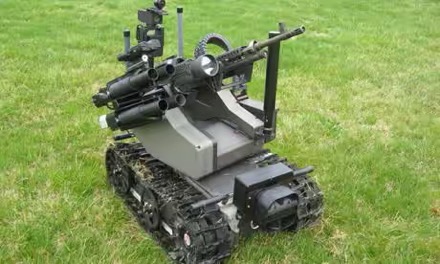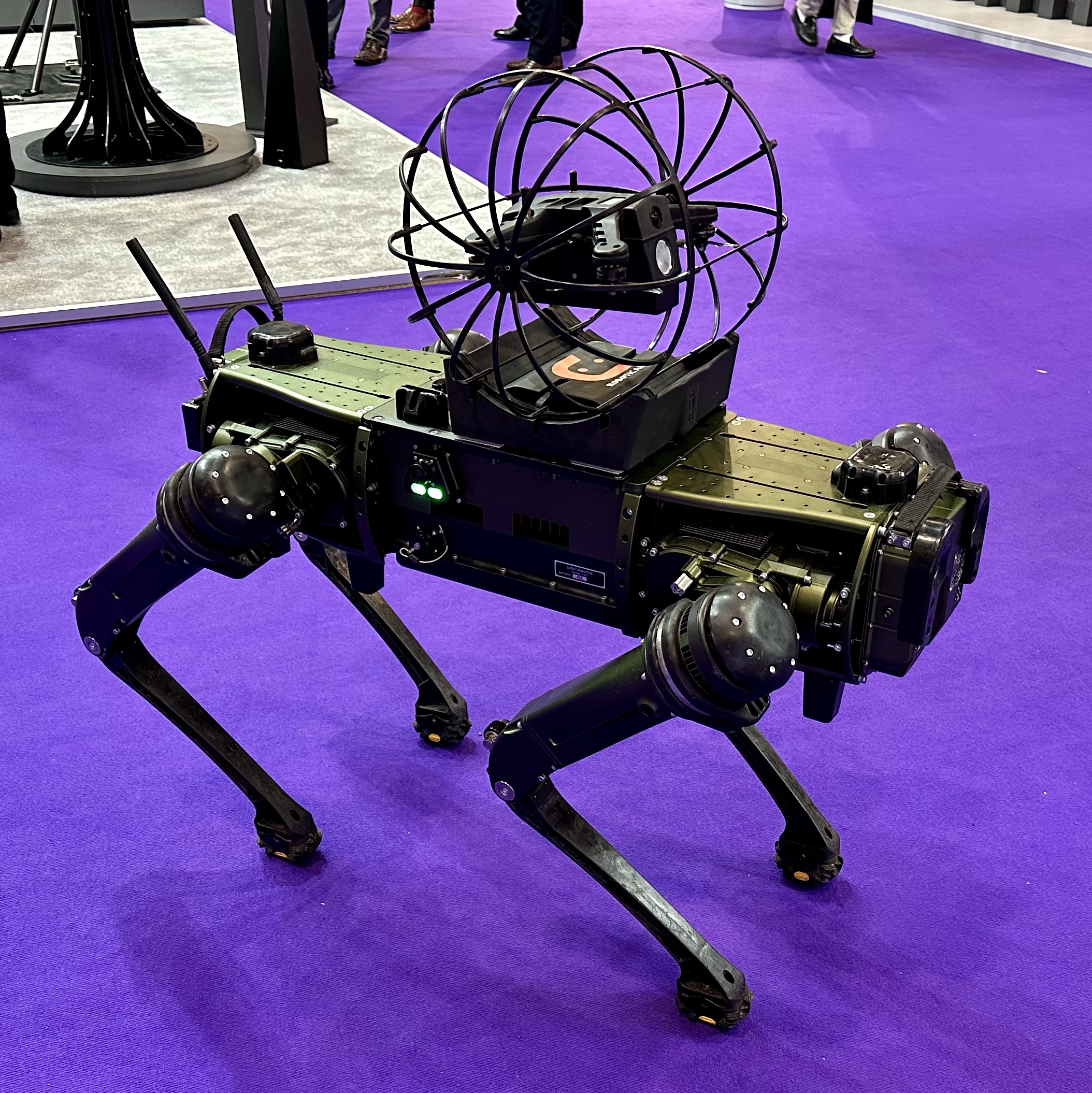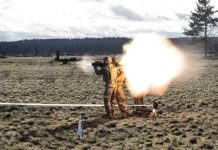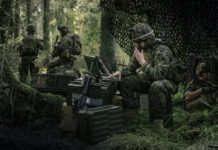
A lot has been made of the weaponization of ground robots. Much of it is is due to our fascination with science fiction. No sooner is an image shared online like the one above of a robot armed with a machine gun than the comments about “Skynet” and “Terminators” kick in. But what is lost on most is why we developed robots in the first place. It wasn’t to deliver a lethal effect; there are lots of ways to make that happen. Robots were created as helpers, in order to remove humans from environments which might endanger them.
We’ve also got to accept a truth which is lost on many. The robot isn’t the capability, it’s the vehicle which delivers the capability. We desire effect and that requires various capabilities which come in the form of payloads. What makes various types of robots more desirable over others is how they deliver the payload to the right place, at the right time, to have the right effect. We use robots to reduce risk, particularly to humans.

Take for instance this image from last week’s DSEI show in London. We see a Ghost Robotics Vision 60 Quadraped – Unmanned Ground Vehicle carrying another robot, in this case an unmanned aerial system configured for an Intelligence, Surveillance and Reconnaissance role. This combination may be perfect, depending on the operational environment. It may be highly lethal to humans and require close access to the target of the surveillance.
To be sure, there are definite reasons to weaponize ground robots. They can be used in overwatch for example, or to guard perimeters. But in each case, they are desirable in these roles because they take a human out of a threat environment. Recently, the US Army stated that it wants to place a Next Generation Squad Weapon XM7 rifle, firing the new 6.8mm cartridge on a Vision 60 Q-UGV. There are technical challenges which a couple of commercial companies have worked through, but it can be done. The question is, “why?” What effect do they believe it will provide? Is it the right payload for that platform?
During the Robotics track of next week’s NDIA sponsored Future Forces Capabilities event in Huntsville, Alabama, you’ll see a lot of talk of various means to weaponize robots. It makes sense considering the event evolved from annual small arms and armaments meetings. However, we need more participation from the ISR community in this event.
The air side of unmanned systems has taken the opposite path. Long dominated by collection activities, they’ve only more recently integrated kinetic weapons delivery to their repertoire.
I believe the best use of at least the smaller classes of ground robots is as platforms for various sensors, including ISR, CBRN and as comms relay nodes for these and others. Persistent access to items of intelligence value puts operators at risk. What’s more, the task is time consuming and boring. a human’s efforts are best spent elsewhere, like considering how to use the data being vacuumed by a multitude of robots fitted witg various collection payloads.
As a former SIGINTer and Intelligence officer I’ve been thinking a lot about how to use ground robots for ISR. There is a lot of synergy to be had between the air, subsurface (maritime), and ground robotics communities when it comes to payloads. We need more interest from the developers of sensors in utilizing ground robots of various classes as platforms and cross talk between the various warfighter communities.
Robots are coming to the battlespace. It’s up to us to determine how to best use them. Some will be armed and some will conduct ISR. Others will serve as logistics enablers and communications nodes.
We need to brainstorm ways to get the most out of our investment in ground-based unmanned systems. Soon, I’ll share a concept I’ve come up with to use Vision 60 Q-UGVs to access challenging terrain and environments to conduct Multi-Int persistent ground surveillance.
-Eric Graves
Editor
You can skip to the end and leave a response. Pinging is currently not allowed.








